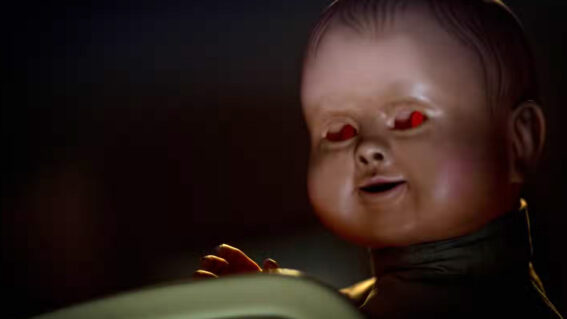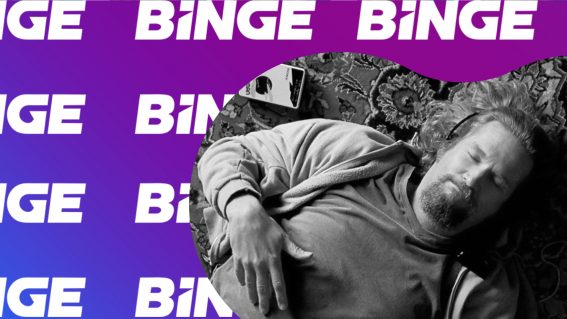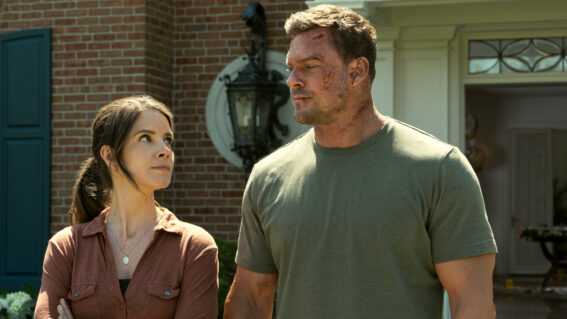I watched all four A Star is Born movies in a single day then dreamt about David Lynch

How would you feel after watching all four A Star is Born movies in a single day? Critic Luke Buckmaster explains why he came out of the experience with weird ideas about David Lynch.
First, a confession: up until a few days ago I had seen none of the A Star is Born movies. There are four in total – released in 1937, 1954 and 1976, and now the Bradley Cooper and Lady Gaga vehicle currently pocketing a pretty penny in cinemas worldwide. I have now watched them all, smashing through the series in one rather long and wearying day.
These films are staunchly unoriginal, celebrated for telling the same story in very similar ways – with a few licks of paint splashed around to provide a veneer of freshness. General audiences flock to see each A Star is Born iteration and yet appear to have little to no interest in the previous installments, unlike most other franchises where lineage is considered important. You could say the story has cultural longevity, or you could say each version of it evaporates from the popular consciousness.
The first major realisation I made during my day of butt-numbing stardom-watching was that A Star is Born is only half of the title. The full title is, or should be ‘One Star Is Born While Another Plummets to Earth and Crumbles to Dust’. In the new film, which was directed by Cooper, Ally (Gaga) is a waitress and aspiring singer-songwriter who becomes famous and successful, while country music star Jackson Maine (Cooper) suffers a downwards spiral due to alcoholism and various self-destructive tendencies.

All versions of the story use melodrama to pose the question of whether a woman’s love is strong enough to save a man who doesn’t appear to be capable of saving himself. A Star is Born presents a highly romantic view of artistic pursuit. In this world the people who achieve great success achieve it because they are greatly talented individuals, who therefore deserve to be famous and influential – the celebrity beacons shining above us, blessed with good looks and prodigious talent.
Cooper embellishes the age-old hope that countless aspiring stars have been holding onto for time immemorial: that if you have enough talent, one day somebody will notice your work and enable your dreams. It is a quixotic ‘build it and they will come’ point-of-view that feels out of step with modern times. Does Ally even bother with self-promotion? Does she have a Facebook page or an Instagram account?
From the director’s perspective it doesn’t matter: she is immensely talented and therefore her success is a fait accompli. This bedrock philosophy is a simple and self-congratulating view of celebrity. One might be tempted to add ‘originating in a less cynical time’, to reference the source material, but the founding 1937 film (about actors, not musicians) is the most cynical of all them. The film tells us, in exactly these words, that a talented person’s chances of making it are ‘one in a hundred thousand’.
The A Star is Born narrative insists on being more than mere fairytale. At its core it is caught between optimism and pessimism: the former reflected through one star’s destiny and the latter another’s fate. Perhaps its most resonant message is a simple clarification: that destiny is something that is pursued and fate something that is suffered.
Since the ’30s a new A Star is Born has arrived every other decade, with the 90s being the sole exception. I like to think that David Lynch’s Mulholland Drive (which, while it opened in 2001, was largely developed the previous decade) is the missing picture. Lynch’s brilliant and bittersweet rumination on Tinsel Town shares many of the same themes, but approaches the story about a young woman trying to make it in ways that are both more mysterious (with multiple forms of reality folding in on themselves) as well as a great deal more realistic and insightful.
In A Star is Born, a talented man recognises talent in a woman (Jackson spots Ally performing at a drag club) and both people make it because they deserve to make it. In Mulholland Drive, a creepy cowboy arrives in the dead of night to tell a hotshot director that he has no choice: the director must cast who the studio wants in his movie or suffer the consequences. In this world celebrity is made, not earned.

This world is a lot like ours. In 2013, it was reported that Stanley Kubrick once counselled a less experienced filmmaker with the following advice, gleaned from his knowledge of the inner workings of the movie business: “You will not understand what I’m saying, but you must believe me. The studio decides before the movie is ever released how it’s going to do. It has nothing to do with you.’“
Stars like Bradley Cooper and Lady Gaga are understandably reluctant to embrace the message that multinational companies are the forces that truly determine success. To do so would undermine their talent, painting themselves as cogs in an elaborate and well-oiled machine.
A Star is Born is part of that machine, not a reflection of it. If history is anything to go by the latest film will mostly evaporate into the zeitgeist and leave little cultural footprint. A fresh installment will arrive in a couple of decades. It will tell this story as if it has never been told before, and audiences will embrace it as if it were brand new. Meanwhile the cowboy still hides in the shadows somewhere, calling the shots.


















